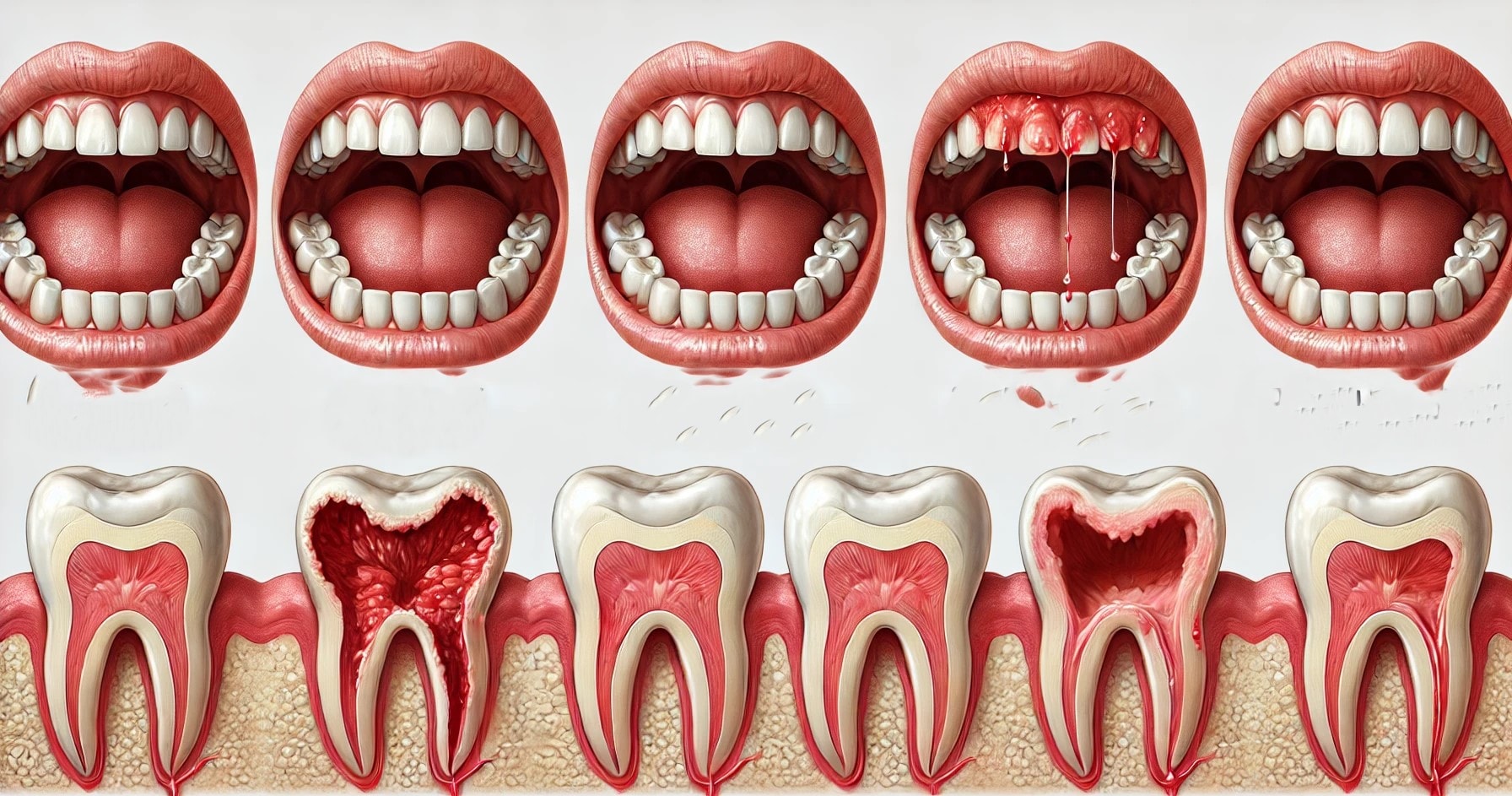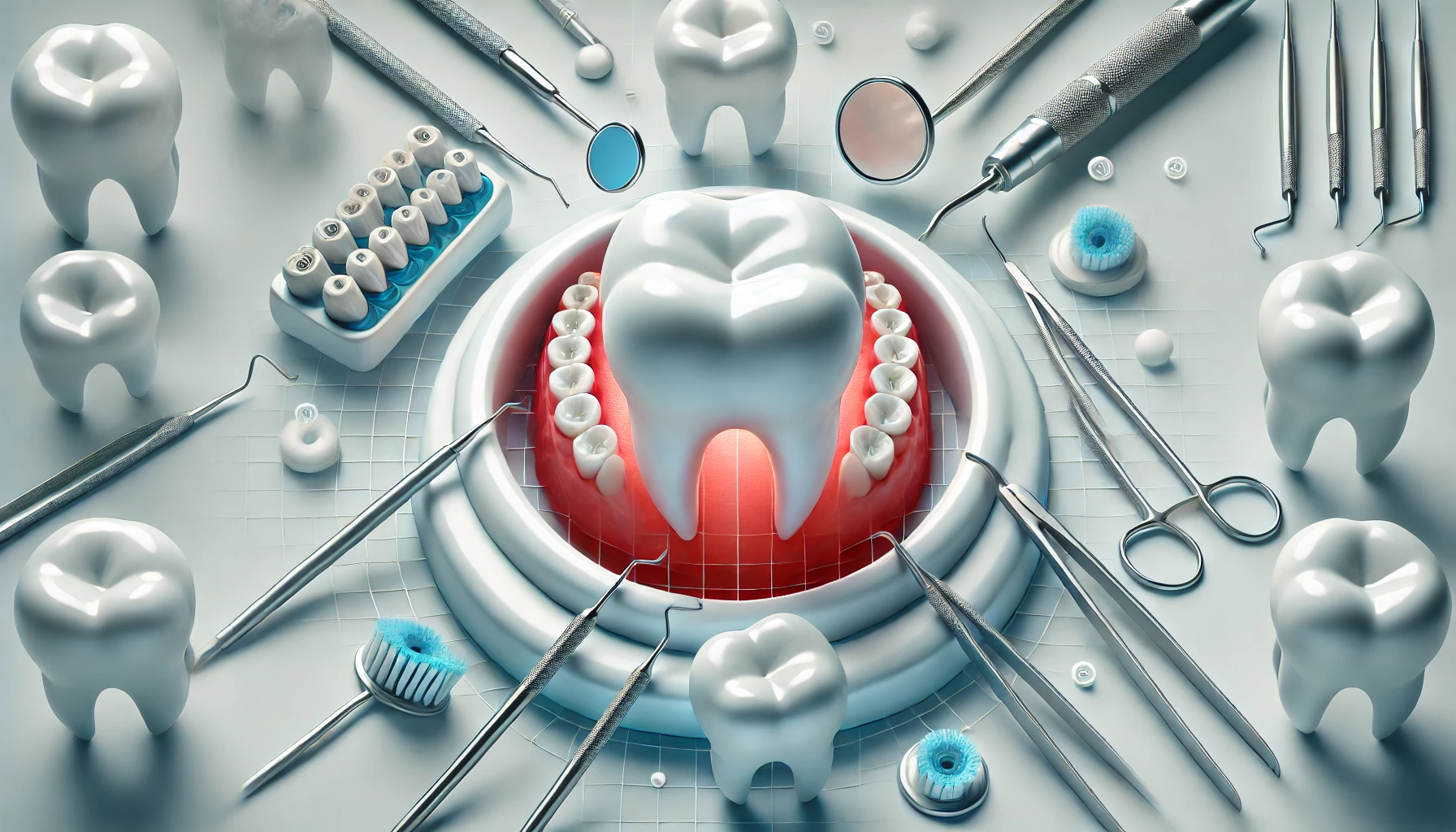Gum disease, also known as periodontal disease, is a common but serious condition that can lead to tooth loss if left untreated. It affects the gums and the bone supporting your teeth, and its early signs can often be subtle.
Maintaining good oral health is crucial to prevent gum disease from progressing. This article will discuss the early signs of gum disease and offer tips on how to prevent it for the sake of your dental health.
What is gum disease and why is it dangerous?
Gum disease is an inflammatory condition affecting the tissues surrounding and supporting the teeth, primarily caused by poor oral hygiene.
Bacteria in plaque cause inflammation, leading to gingivitis, the earliest stage of gum disease, characterized by red, swollen, and bleeding gums. If untreated, it can progress to periodontitis, where the gums pull away from the teeth, forming pockets that can become infected.
This advanced stage can lead to the destruction of the bone and tissue supporting the teeth, ultimately resulting in tooth loss. Ensuring a proper oral care routine can help prevent gum disease and safeguard overall dental health.
Stages of gum disease and their symptoms
Gingivitis: As mentioned before, gingivitis is the initial stage of gum disease. Symptoms include red, swollen, and tender gums that bleed easily during brushing or flossing. It may also cause bad breath.
Periodontitis: In this stage, the plaque hardens into tartar, creating a rough surface where more bacteria can grow. The body’s immune system responds by attacking the infection, leading to inflammation, and causing damage to the bone and tissues supporting the teeth. Symptoms include receding gums, deep pockets between teeth and gums, loose or shifting teeth, and changes in bite alignment.
Advanced Periodontitis: The final stage of gum disease is advanced periodontitis, where the damage to bone and tissues is irreversible, leading to tooth loss. Symptoms include severe gum recession, deep pockets filled with pus, loose teeth or teeth that have fallen out.
Treatments for gum disease
The best way to prevent gum disease is by following a good oral care routine, including brushing twice a day, flossing daily and using an antiseptic mouthwash. If you notice any early signs of gum disease, such as bleeding or swollen gums, it’s essential to visit your dentist for a professional cleaning and check-up.
If the condition has progressed to periodontitis or advanced periodontitis, your dentist may recommend more intensive treatments such as root planing and scaling, antibiotics, or surgery. It’s crucial to follow these treatments diligently to prevent further damage and maintain dental health.
Here are the early signs of gum disease and ways to prevent it:
- Bleeding gums: One of the first signs of the disease is gums that bleed during brushing or flossing. Don’t ignore this symptom.
- Redness and swelling: Inflamed, red gums are another common sign that gum disease is developing.
- Bad breath: Persistent bad breath may indicate that bacteria have built up in the mouth, leading to gum problems.
- Receding gums: As gum disease progresses, gums may recede, making the teeth look longer.
- Loose teeth: In advanced stages of gum disease, the bones supporting your teeth can weaken, leading to loose teeth.
Summary
Gum disease is a prevalent condition that can severely impact your oral health if left untreated. Recognizing early signs, such as bleeding gums and bad breath, can help you seek prompt treatment and prevent the disease from progressing.
By practicing good oral hygiene, visiting your dentist regularly, and addressing any early symptoms, you can maintain healthy gums and teeth. Early prevention and treatment are key to avoiding severe gum diseases and protecting your dental health.
Questions and Answers
What are the early signs of gum disease?
Early signs include bleeding gums, redness, swelling, and bad breath.
How does gum disease affect oral health?
Gum disease can lead to receding gums, tooth loss, and infections that impact both the teeth and the gums.
Can gum disease be reversed in its early stages?
Yes, in the early stages (gingivitis), gum disease can be reversed with proper brushing, flossing, and regular dental care.
How can I prevent gum disease?
Prevent gum disease by brushing twice daily, flossing, using mouthwash, and visiting your dentist regularly for check-ups.
Is gum disease painful?
In the early stages, gum disease may not be painful, but as it progresses, it can cause discomfort, swelling, and even pain.
How often should I visit the dentist to prevent gum disease?
Regular dental visits every six months can help detect and prevent gum disease early.
Can smoking contribute to gum disease?
Yes, smoking weakens the immune system and makes it harder for the gums to fight infection, also increasing the risk of gum disease.
What role does diet play in preventing gum disease?
A balanced diet rich in vitamins and minerals supports your immune system and promotes healthy gums.
How serious is advanced gum disease?
Advanced gum disease can cause tooth loss and damage to the bone that supports the teeth, making it our a serious condition if left untreated.
Are gum disease and heart disease connected?
Some studies suggest a link between gum diseases and heart disease, indicating that poor oral health may contribute to other health issues.





